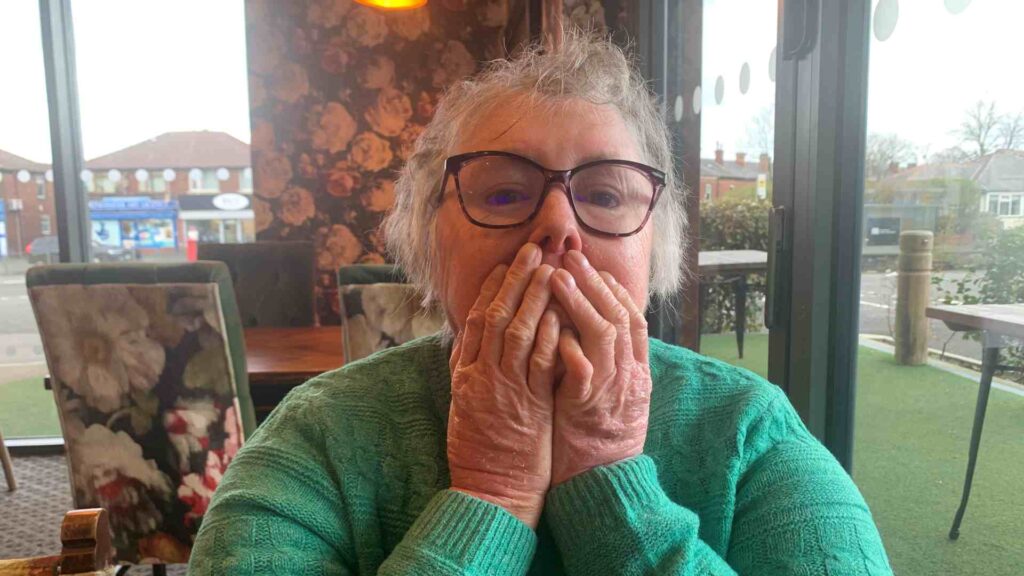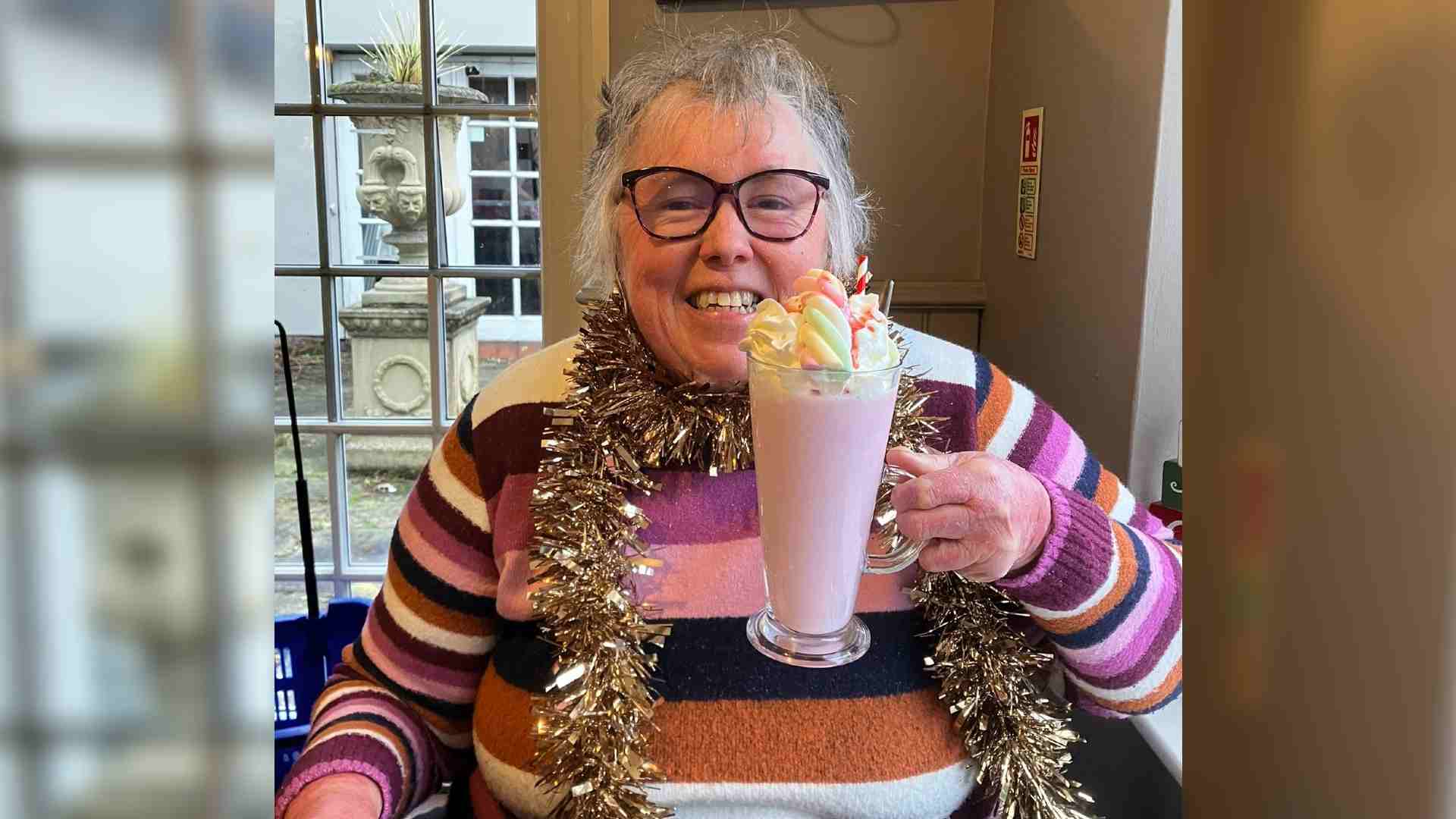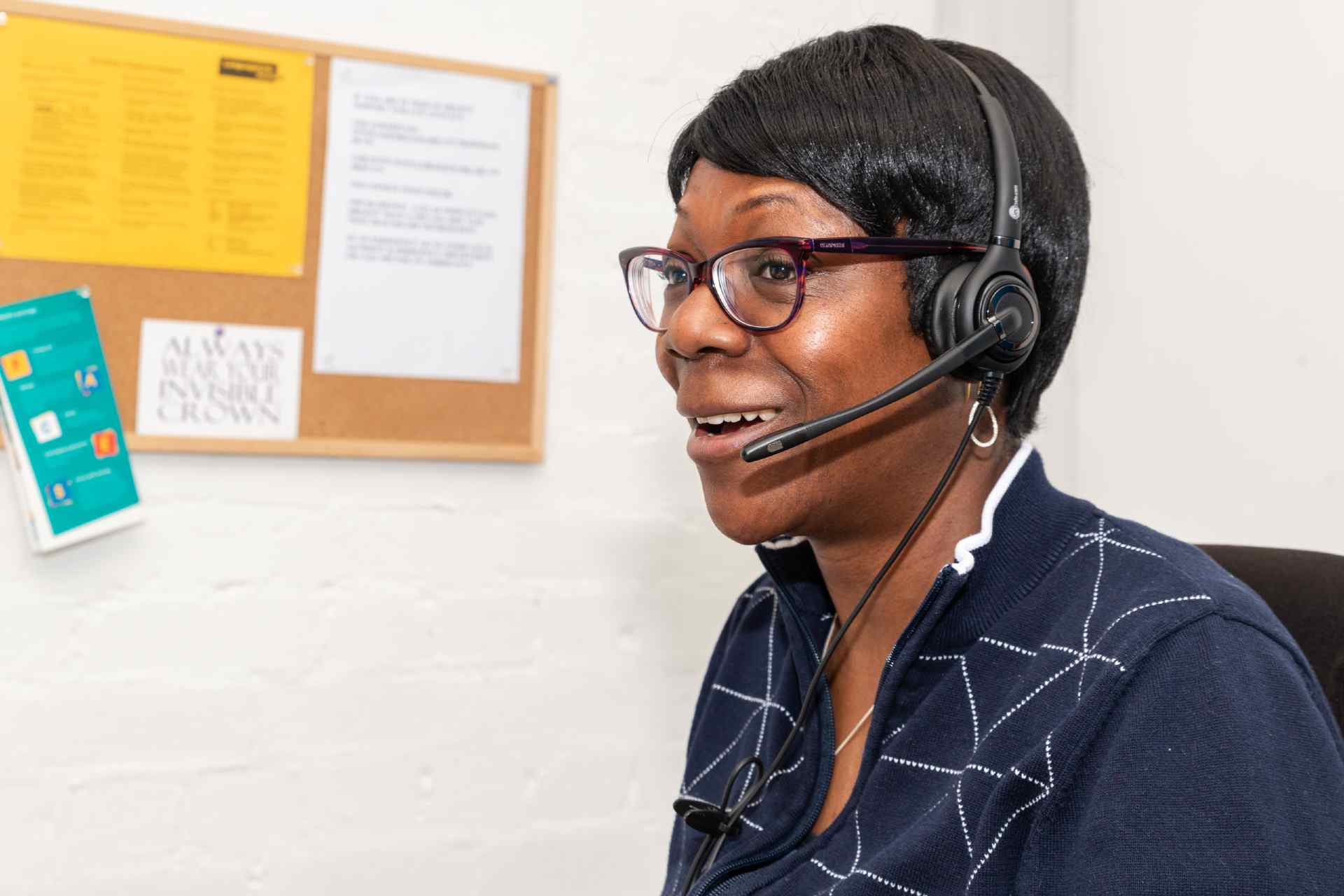I’m Mary, I’m 59 and I was born with a very rare dry skin condition called pityriasis rubra pilaris (PRP). This means that the cells in my skin divide at an accelerated rate, making my skin shed and look very red.
My difference became apparent at an early age. In infant school, some of the children told me I wasn’t allowed to use the skipping rope because of my condition. When the class went for nature walks, I was often alone. Nobody wanted to hold my hand, so I had to hold the teacher’s hand.
High school was not a happy time for me. Other pupils made their feelings known about my visible difference and I couldn’t cope. I have memory loss of my early years of high school. I did eventually find my tribe, and by the time I left high school, I had begun to enjoy it.
I went to college and then commenced my working career. This was a moment of joy as the early view of dermatologists were that I would never work and should remain at home.
I have had to advocate for myself, with little to no support. This has helped me become more assertive, but my feelings of shame remain.
In the years that followed, I endeavoured to become more experienced and knowledgeable in my role of caring for others and a senior colleague recommended that I apply for a nursing qualification. With much perseverance and some delay, I was offered a place, with the assessment panel saying I demonstrated strength in both my academic and practical knowledge. My joy was short lived when I attended a medical interview. I had hardly sat down when the interviewer told me I would NOT be able to take my place on the course and said the words I will never forget, “Has anyone told you that you are repulsive to look at and would make any sick patient want to vomit?” As she completed her sentence she drew her pen across my application.
I tried to reason with her, so she called her colleague in. Her colleague agreed with her position and then told me that, of all the students in the hall that day, my exam had scored the highest by a long way and I would be “going places”. I genuinely couldn’t believe their actions and thought it was a test to see whether I would be too sensitive to comments about my skin. It was not.
I appealed the decision. The doctor who conducted my appeal laughed in my face and told me he had only agreed to see me to tell the dermatology department to sort me out. I tried to state my case, saying I worked in my father’s shop and mixed with people in my job. His reply was that if it was up to him, I would be locked away out of sight. This was before disability rights were in force, so that ended my nursing career.
Ten years after my nursing application, I applied to join a company. I had been accessing their service for quite some time but wanted to do more. My hopes were dashed when they declined and asked me to leave their service because they felt my skin posed a threat to the professionalism of their business. They also wanted to offer unsolicited advice about which creams I use. I challenged their decision under disability rights and won my case, but it wasn’t an easy process.

Mary has often felt like her voice isn’t heard
Socialising has always been tricky for me. I discovered that I didn’t know how to handle the issue of talking about my condition. If I didn’t mention it, people would spend the conversation staring at my hands. If I explained my condition, I looked like I was obsessed with my skin. It felt like I couldn’t win.
In my search for love, I joined a dating agency, but the results were poor. A man I met asked me for a second date, but as soon as I sat down, he told me he didn’t want to see me again. I looked confused. He said he wanted to tell me face to face that he had been in touch with the dating agency and asked for my name to be removed from the books because in his opinion nobody will ever want to be with me. He told me that I was a joke and a timewaster, which upset me. I was so angry.
Throughout my life, I have experienced negativity, including at work. I’ve had projects sabotaged, and felt under-valued, even though I’d received praise for my work. I have also experienced bullying and inappropriate comments. On one occasion, after I complained, the management deemed me to be the problem and even offered unwanted advice on how I should manage my condition. For example, I was told that I could wear long sleeves when my skin is more active – I prefer this term over “good” or “bad” as my skin is not a behaviour. My voice was never heard.
The nature of the comments caused concern for other members of staff who also had dry skin or a child with a visible difference. Their support really helped me, but I never received an apology from the bullies.
Their complaints and behaviours were a hate crime, as it demonstrated a group of colleagues turning on a person because of a protected characteristic – disability. To others in a similar position, do not be afraid to speak out against this.
Nobody has EVER asked me how I feel regarding my condition. When I assert my needs and feelings, I often feel unheard and misunderstood.
Why shouldn’t I be allowed to progress peacefully through life just because of the way I look?
Over the years, I have been made to feel unimportant, and my skills and efforts have been overlooked. Nobody seems to show concern for my hurt feelings or lost opportunities. Coping with these feelings of hurt and rejection has been difficult. In all the above experiences, I have had to advocate for myself, with little to no support. This has helped me become more assertive, but my feelings of shame remain. People see my skin but not me as a person, and that’s hard. For years, I’ve carried these unwelcome prejudices around with me, even though they are not mine to carry. I have been diagnosed with complex PTSD due to what I’ve been through and am currently learning somatic healing techniques.
We live in a society which places too much value on external appearance. The treatment I’ve had to endure from partners, colleagues and healthcare professionals all stems from societal stigma.
When people tell me to draw a line under my experiences and move on, I tell them that I cannot draw a line with a crooked ruler. The crooked ruler is ableism that perceives me as damaged goods and a problem to be fixed.
I am a human being living with a medical condition. It does not define me. The majority of people do not have a problem with my skin, but a loud minority do. Why shouldn’t I be allowed to progress peacefully through life just because of the way I look? Society needs to change. It’s time to ease the pain and end the shame of skin conditions and other visible differences.

